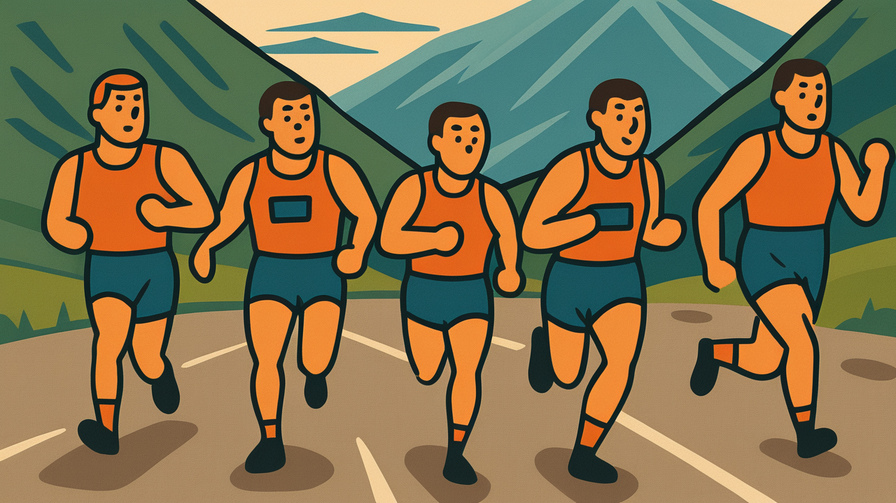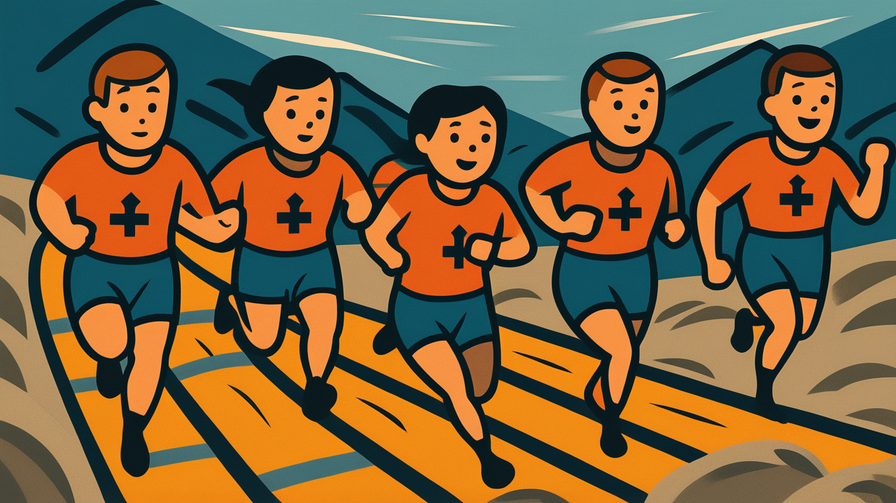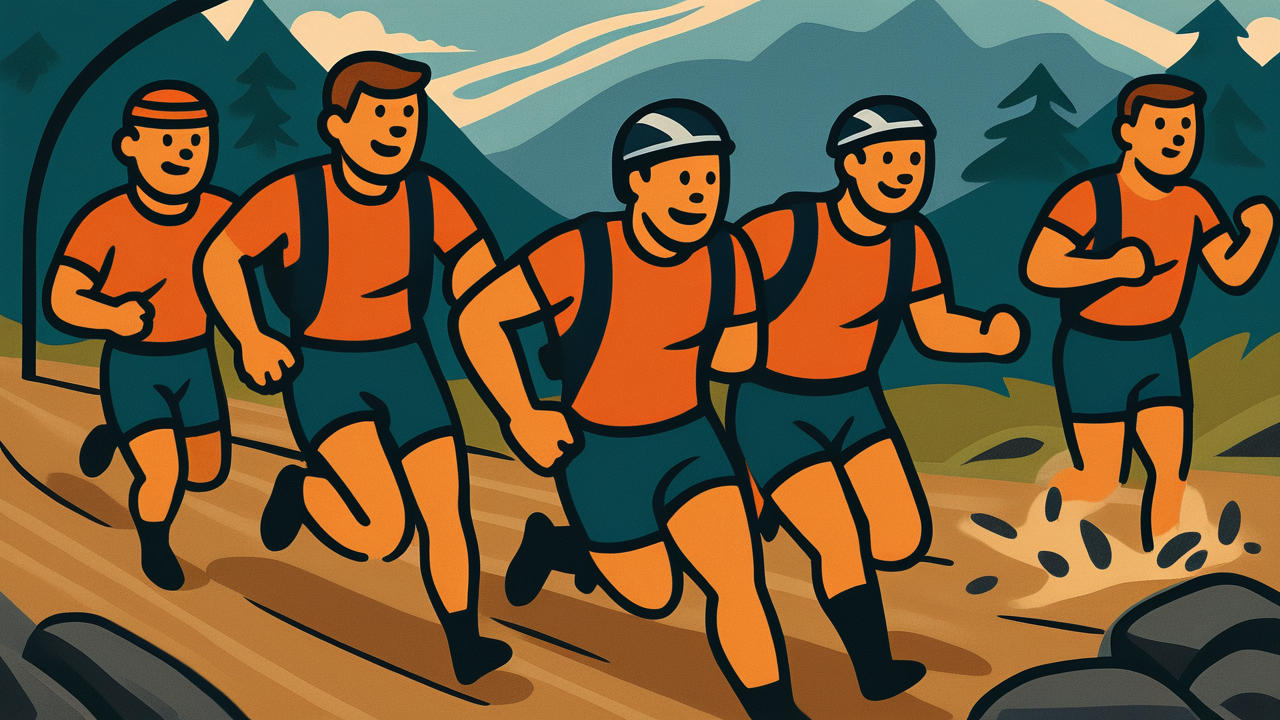[Disclaimer] This article is reconstructed based on information from external sources. Please verify the original source before referring to this content.
News Summary
The following content was published online. A translated summary is presented below. See the source for details.
Netflix is dropping something totally new for Japan – a hardcore physical survival show called “Final Draft” where 25 former athletes get to compete for a second chance at glory. Premiering August 12, this isn’t your typical reality show. These are real athletes who had to quit their sports for various reasons – injuries, financial problems, or just life getting in the way. Now they’re back to prove they’ve still got what it takes. Think of it as the ultimate comeback story times 25! The show promises intense physical challenges that will push these ex-athletes to their absolute limits. Unlike other survival shows that focus on drama or voting people off, “Final Draft” is all about pure athletic competition. Contestants will face challenges designed to test every aspect of their physical abilities – strength, speed, endurance, and mental toughness. What makes this extra interesting is that these athletes come from all different sports backgrounds, so watching a former swimmer compete against an ex-wrestler in the same challenge should be pretty wild.
Source: Netflix newsroom
Our Commentary
Background and Context

Japan has always been super into sports and competition shows, but “Final Draft” is breaking new ground as the country’s first physical survival series. While shows like Ninja Warrior started in Japan and became global hits, this is different because it’s specifically about giving failed or retired athletes another shot. In Japanese culture, there’s a huge emphasis on perseverance and redemption – concepts like “nana korobi ya oki” (fall seven times, get up eight). This show taps into that cultural value while also appealing to the global love of underdog stories. Many athletes in Japan face intense pressure and limited career options after sports, so this show addresses a real issue.
Expert Analysis
Sports psychologists are fascinated by shows like this because they explore what happens to athletes after their careers end – something most people never think about. For many athletes, their sport is their entire identity, and losing that can be devastating. “Final Draft” offers something unique: a chance to reclaim that athletic identity. The show’s format of mixing athletes from different sports creates interesting dynamics. A gymnast might excel at balance challenges while struggling with pure strength tests that favor powerlifters. This levels the playing field and makes outcomes unpredictable. It also highlights how different sports develop different skill sets, which could be educational for viewers.
Additional Data and Fact Reinforcement
The reality TV market in Japan is worth billions, but physical competition shows have mostly been game shows rather than survival series. Studies show that 78% of professional athletes experience depression after retirement, often feeling lost without their sport. In Japan specifically, only about 20% of professional athletes successfully transition to stable careers after sports. Shows like “Final Draft” could potentially open new opportunities for participants – past reality show athletes have gotten coaching jobs, endorsement deals, or media careers. Netflix has been investing heavily in Asian content, with Japanese shows like “Squid Game” (okay, that’s Korean, but you get the idea) and “Alice in Borderland” becoming global hits.
Related News
This show joins a growing trend of “second chance” reality programming. In Korea, “Physical: 100” became a massive hit by pitting different types of athletes against each other. The US has shows like “The Ultimate Fighter” giving MMA fighters another shot at the big leagues. What makes “Final Draft” unique is its focus on redemption rather than just competition. The timing is interesting too – it’s launching right after the Olympics when sports enthusiasm is high. Netflix has been smart about releasing sports content during peak interest periods. Other streaming services are also developing athletic competition shows, signaling a new reality TV arms race.
Summary

“Final Draft” represents a new chapter in both Japanese television and reality competition shows. By focusing on former athletes seeking redemption rather than just prize money or fame, the show offers something deeper than typical reality TV. Whether these 25 athletes find their second chance at glory or not, their journey promises to be compelling television that could inspire viewers facing their own comeback challenges.
Public Reaction
Japanese social media is already buzzing about which former athletes might be participating. Fans are speculating about everyone from Olympic alternates to high school phenoms who never made it pro. International Netflix subscribers are excited too, especially fans of sports anime who see this as a real-life version of their favorite comeback stories. Some people worry the show might exploit athletes’ struggles for entertainment. However, many former athletes have spoken positively about the opportunity, saying it gives them closure they never got. Sports fans are creating prediction brackets for who might win based on the types of challenges they expect.
Frequently Asked Questions
Q: Is this like American Ninja Warrior?
A: Not exactly. While both have physical challenges, “Final Draft” focuses specifically on former athletes getting a second chance, and it’s more of a survival competition format where contestants might be eliminated over time rather than single-run attempts.
Q: Will there be English subtitles?
A: Yes! Since it’s a Netflix production, it will have subtitles in multiple languages, and possibly even dubbing in major languages like English, Spanish, and others.
Q: Why do so many athletes struggle after their careers end?
A: Athletes often dedicate their entire lives to their sport from a young age. When that ends suddenly due to injury or age, they lose not just their job but their identity, daily routine, and often their social circle. It’s like starting life over from scratch.


